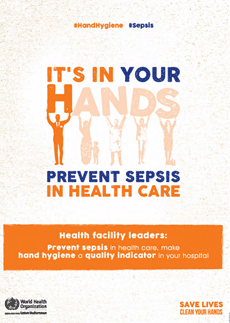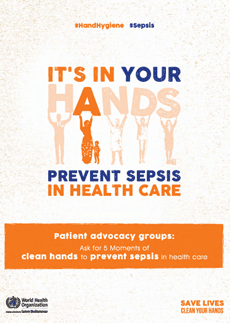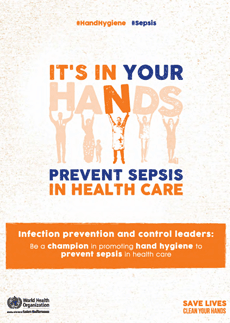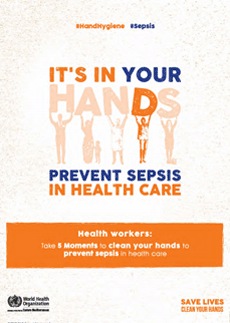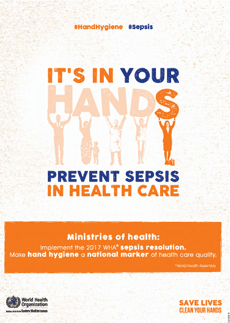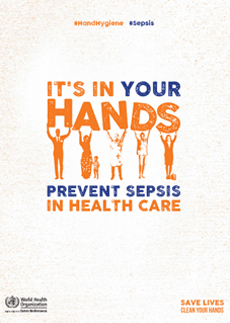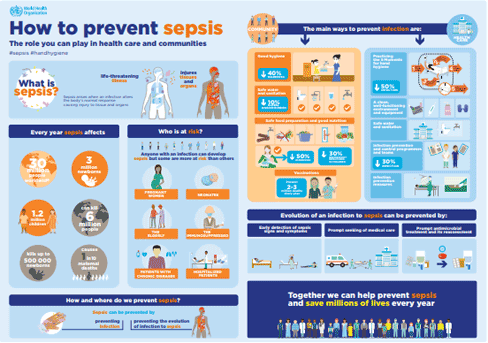World Hand Hygiene Day 2018
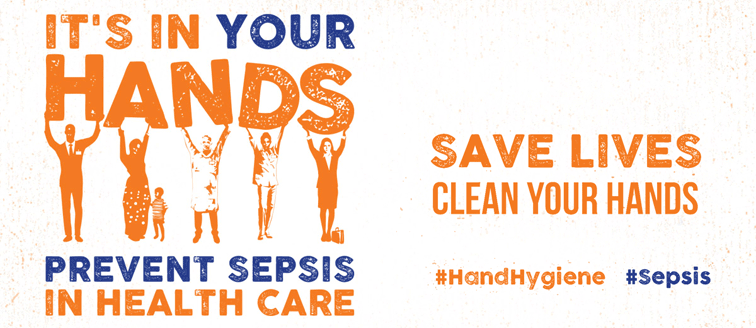
Sepsis is a life-threatening condition that arises when the body’s response to infection causes injury to its own tissues and organs. It is estimated to affect more than 30 million patients every year worldwide and global rates of sepsis are thought to be growing rapidly.
World Hand Hygiene Day, marked globally on 5 May, highlights the importance of hand hygiene in health care to prevent infections including sepsis.
The slogan of this year’s campaign is “It’s in your hands – prevent sepsis in health care”, illustrating the important relationship between good infection prevention and control practices, such as washing your hands, and preventing sepsis.
Through this year’s World Hand Hygiene Day campaign, WHO is calling on health facilities to prevent health care-associated sepsis through hand hygiene and action on infection prevention and control.
WHO is also calling on countries and health care facilities to strengthen infection prevention and control programmes based on WHO guidelines. These include a set of core components for successful implementation of national and facility-level infection prevention and control programmes.
WHO will work with partners to improve access to quality, safe and affordable treatments for sepsis and tools for infection prevention and control, including immunization, particularly in developing countries.
Posters
|
|
||
Key messages and calls to action

Health workers:
“Take 5 Moments to clean your hands to prevent sepsis in health care."

IPC leaders:
“Be a champion in promoting hand hygiene to prevent sepsis in health care.”

Health facility leaders:
"Prevent sepsis in health care, make hand hygiene a quality indicator in your hospital.”

Ministries of health:
"Implement the 2017 WHA sepsis resolution. Make hand hygiene a national marker of health care quality."

Patient advocacy groups:
"Ask for 5 Moments of clean hands to prevent sepsis in health care."








